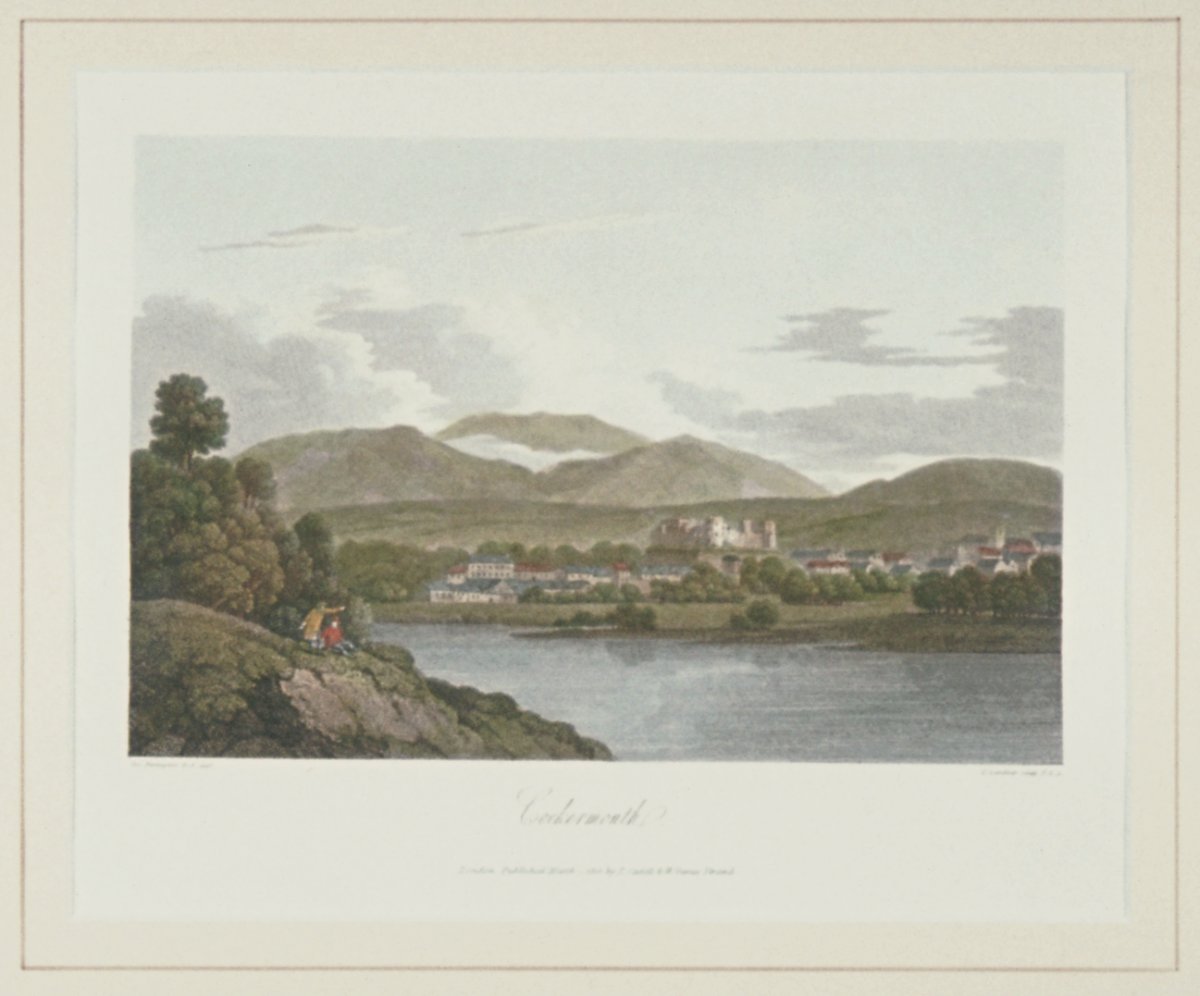Cockermouth
Joseph Farington (1747 - 1821)
John George Landseer (1769 - 1852)
Coloured engraving
published 7 March 1816
-
About the work
- Location
-
Country: Other
City: other locations abroad
-
About the artist
Joseph Farington was born in Leigh, Lancashire, son of the vicar of Leigh and rector of Warrington. He was educated in Manchester and studied under Richard Wilson in London from 1763. He entered the Royal Academy Schools in 1769 and became an Academician in 1785. His strength was in pen, ink and wash drawings of topographical views. He made extensive sketching tours of the UK and settled in the North Country from 1776. Works made there led to the publication ‘Views of the Lakes of Cumberland and Westmorland’ (1785). In 1780 he suffered a breakdown after his wife died. In the next year he moved to London. He died on a visit to his brother in Lancashire, when he fell down steps at Didsbury Church. His personal diaries were published in 1934.
John George Landseer was born in Lincoln; the son of a jeweller. After moving to London, he was apprenticed to W. Byrne. His earliest work was for J. Farington’s ‘Views in the Lake Country’ (1784-88). He also produced plates for D. Hume’s ‘History of England’ (1792-93) and engraved P. J. de Loutherbourg’s Bible vignettes (1794). His children include engraver Thomas (1793/4-1880), painter Charles (1799/1800-1879), painter Sir Edwin (1802-1873) and miniaturists Jessica (1807-1880) and Emma (1809-1895). He campaigned for engravers to be full members of the Royal Academy, becoming an associate in 1806. He published his ‘Lectures on the Art of Engraving’ (1807) and two short-lived journals. From 1837 he was engraver to William IV. He died at 89.
-
Explore
- Places
- Subjects
- Materials & Techniques
-
Details
- Title
- Cockermouth
- Date
- published 7 March 1816
- Medium
- Coloured engraving
- Dimensions
- height: 26.50 cm, width: 33.50 cm
- Acquisition
- Purchased from Sotheby's, 22 February 1977
- GAC number
- 13063